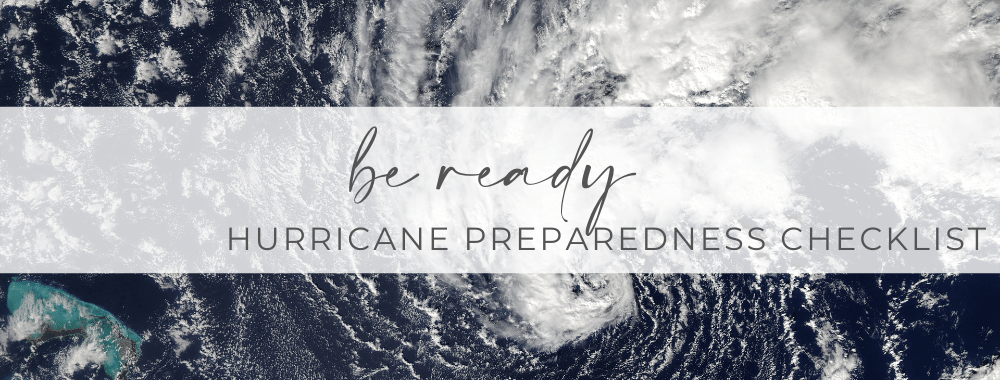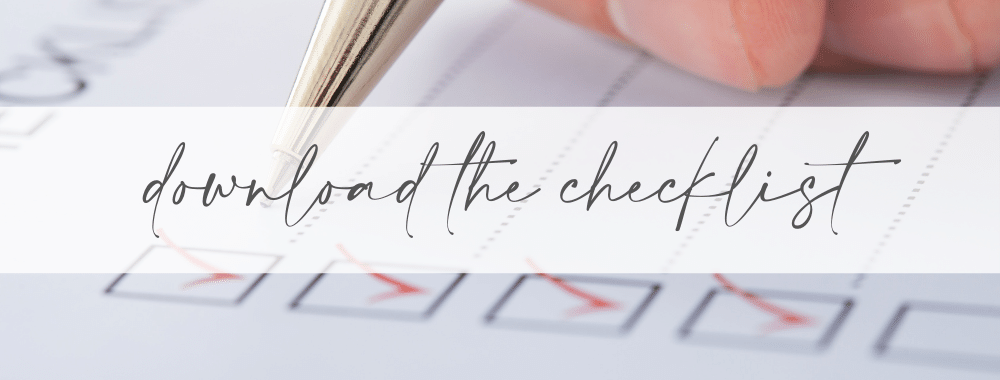Be Ready: Hurricane Preparedness Checklist
Be Ready: Hurricane Preparedness Checklist
Are you prepared for a hurricane? When the time comes for you to decide on whether you’re evacuating or riding out the storm, it’s important to know what steps should follow. Timing is of the essence in these situations, and the longer it takes for you to figure out a plan – the less time you have to physically prepare. You should have a set list of protocols for each person for both scenarios – leaving and staying. Regardless of your decision, here are a few things to remember when a potentially dangerous storm is still a few days out.
Be ready. Determine your personal hurricane risk, find out if you live in a hurricane evacuation zone, and review/update insurance policies. You can also replenish hurricane emergency supplies and start thinking about how you will prepare your home for the coming hurricane season. You are encouraged to complete these simple preparations.
Hurricane Preparedness Checklist – Step 1: Preparing Your Home
Valuable tips for preparing your home –
- Secure all outside furniture and any other objects that could be a potential hazard. Your best bet here is to move it all inside, but if that’s not possible – tie it down to something permanent. Outdoor showers can be a great use of space for anything you don’t want to bring inside.
- Board up all windows and sliding glass doors. Many coastal homeowners have hurricane shutters that can be used for this purpose, which can be a great time-saving investment. For those without the luxury, 3/4″ plywood usually does the trick. When time is of the essence, it helps to have these boards pre-cut and marked for each spot. If you’d prefer not to drill holes directly into the exterior of your home- these Plylox Window Clips might help do the trick.
- Prep the fridge and freezer. If the power goes out for an extended period, you’ll want to salvage as much food as possible. Pack up coolers with as much instantly edible food as possible because, in the case of a power outage, you likely won’t have any appliances to cook with either. Save some room for ice, and consider stocking up on non-perishable items before the grocery stores sell out of necessities. If you’re leaving, an age-old trick to see if the power went out is to freeze a cup of water and place a quarter on top, then leave it in the freezer. If the quarter sinks to the bottom, you’ll know that the power went off for an extended period of time, and any remaining food should be thrown away.
- Have plenty of bottled water on hand. In these situations, you never know how long you might have to go without clean water, so it’s important to ensure that you’re stocked up for at least a week. Some people choose to fill up bathtubs for toilet refills.
- Protect your valuables. It’s a good idea to purchase a secure box to keep things like Titles, Passports, Birth Certificates, Social Security Cards, and Insurance Information together – and make sure you know where it is at all times. Family photos, videos, and keepsakes are also things you may want to include. Be sure to take valuables with you if you evacuate.
- Fill up your gas tanks. Don’t wait on this step – as many of the local gas stations can’t keep up with demand just a few days before a storm is scheduled to hit, and it could take them a while to receive another shipment. This not only goes for your vehicles but for chainsaws and generators as well.
- Get cash. If electric and/or internet service is down – credit and debit machines may not work.
Hurricane Preparedness Checklist – Step 2: Preparing Your Family
Once you and your family prepare and review a Pre-Storm checklist, it will be easier for everyone to focus on their specified tasks when the time comes. Make sure you review it frequently and update the list as necessary. Here are a few ideas for you to help get everyone involved throughout the process.
- Have everyone pack a suitcase with essential clothes. Children may need some help with this process, but make sure that you bring some of their favorite items along as well to keep them occupied. Place them in a secure space that you can access easily, in case you need to leave in a hurry. A First Aid Kit should also be readily available within these bags.
- Create a list of emergency numbers and addresses. Don’t rely on memory or your mobile device’s contact list. Creat a list of important phone numbers and addresses. Be sure to include local hurricane shelter information and a plan for pets and medically-fragile family members should you need to evacuate urgently.
- If you do end up leaving the area, keep family and friends updated as much as possible with your intended location and estimated arrival time.
- If you plan on riding it out, go ahead and create a safe space in the most secure room you have. Preferably off the ground level and with little to no window coverage. Set up sleeping arrangements for your family and ensure there are plenty of flashlights, batteries, candles, games, or books to keep you occupied if the power goes out.
Hurricane Preparedness Checklist – Step 3: Staying Informed
Knowing what’s happening and what is expected to happen is one of the most crucial parts of staying safe during a hurricane. Luckily, we have a news crews that keep an eye on the tropics throughout the year and keep us in the loop if we need to start making preparations. You’ll want to have as much of a head-start as possible when securing your home, and go ahead and take off a few days before if you plan on traveling. Whether you’ve decided to stay or go, you can do a few things to help understand how the storm is progressing in your area.
- NOAA National Hurricane Center (NHC) posts updates approximately every 6 hours whenever a tropical cyclone has formed in the Atlantic. You can find these updates on hurricanes.gov, or NOAA Weather Radio for North Carolina.
- Know the difference between hurricane watches and warnings
- Hurricane Watches – Hurricane conditions (sustained winds of 74 mph or greater) are possible within your area. Because it may not be safe to prepare for a hurricane once winds reach tropical storm force, the NHC issues hurricane watches 48 hours before it anticipates tropical-storm-force winds.
- Hurricane Warnings – Hurricane conditions (sustained winds of 74 mph or greater) are expected somewhere within the specified area. The NHC issues a hurricane warning 36 hours before tropical-storm-force winds to give you time to complete your preparations. All preparations should be complete. Evacuate immediately if ordered to do so.
- Follow along with your local town government website, E-mails, and social media platforms for updates regarding curfews, mandatory evacuations, and re-entry.
- If you stayed in the area, don’t leave your house until you’re 100% sure it’s safe to do so. Assess any damages to your property, and take immediate action as needed. Have an idea of your neighbors that have stayed, and check on them once you have identified that the storm has passed.
- Flooding and storm surges are often the most devastating factors from Hurricanes along our coastal communities. Make sure that it is safe and think twice before attempting to drive through any standing water.
Hurricane Preparedness Checklist – Step 4: Cleaning Up The Mess
If there are a few things Eastern NC has learned after destructive hurricanes, it’s how to bounce back. Our community and countless organizations help those who are in need by distributing food and supplies. Here are a few tips we learned throughout the last year that we hopefully won’t have to use again for a long time.
- Tarps are crucial. Many homes were damaged from high winds and rainwater pounding on the roof. If you can effectively place tarps over the affected areas, it can buy you time before hiring a crew for a full or partial replacement.
- Know before you go. A few areas were cut off for a period of time due to high floodwater over streets. It’s important to have a firm understanding of how deep the water is and whether or not there’s any fallen debris that might get you stuck on your way home.
- Choose your contractors wisely. It’s important to ensure that any projects that aren’t possible for you to tackle are licensed and insured for the job they’re hired to do. Whenever possible, make sure you contact friends and/or past clients to gather their experiences.
- Don’t be afraid to ask for help. If there’s something that you need assistance taking care of, be sure to ask a friend, family member, or neighbor to help you out. Don’t overwork yourself and risk getting hurt just to get the job done. There are usually plenty of people around that are willing to help you out.
- It’s important to have approved permits for any significant projects and/or upgrades when rebuilding after a storm. Check to ensure your general contractor is aware of the process and what documents must be obtained before starting any major construction.
Download the Hurricane Preparedness Checklist
Other Helpful Hurricane Preparedness Checklists
- Hurricane Season Digital Toolkit
- AccuWeather Hurricane Preparedness Checklist
- National Hurricane Preparedness
- How to Prepare for Hurricane Season
If you need more information, read Crystal Coast Hurricane Information and visit Ready.Gov for additional information and helpful checklists.







